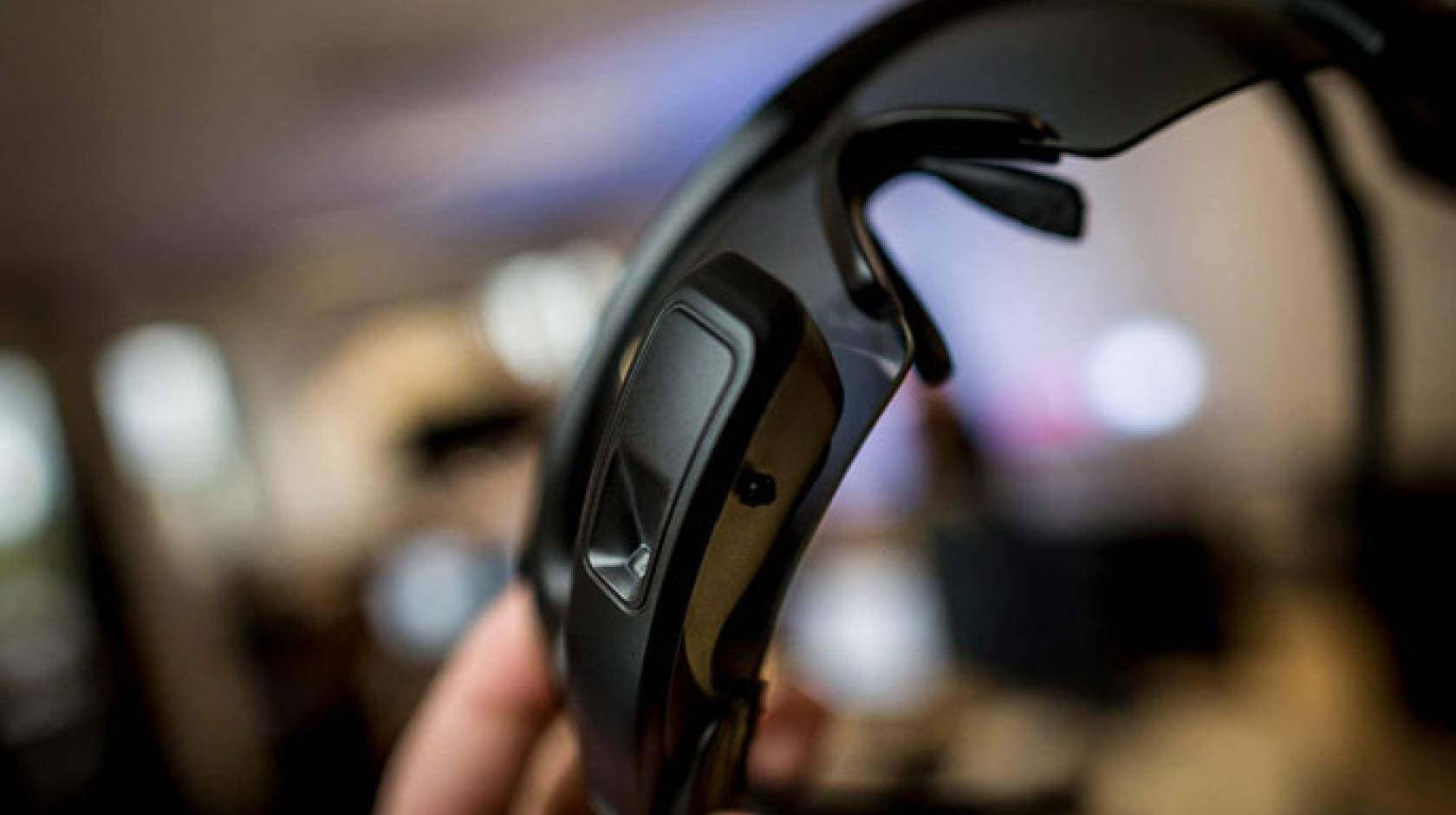Hallie Jacobs, UC San Diego

When asked what qualities a successful entrepreneur should have, Suman Kanuganti’s answer is succinct: “Have Drive. Learn. Embrace risks.”
Qualities Kanuganti (MBA ’14) possesses in spades. As the CEO and co-founder of a flourishing startup born out of a Rady School of Management course, his determination is obvious. However, drive alone does not ensure the success of a startup, Kanuganti said. Embracing innovation is also key.
A foundational understanding of innovation brought Kanuganti to the Rady School in 2013, where he hoped to create something new with the intention of helping others. With a background in engineering, he possessed the tools to bring ideas to life, but needed that lightbulb-inducing concept to satiate his innovative appetite.
Inspired by the tenacity and independence of a visually impaired friend, Kanuganti sought to develop technology that could help his friend navigate the world. Thus, Aira was born.
Technology meets mission

Credit: Erik Jepsen/UC San Diego Publications
Aira is a remote assistive technology platform that combines wearable smart device technology — such as Google Glass — with personalized service. It connects visually impaired users with remote agents to interpret the data stream from smart glasses and assist them in navigating their way around their environment. When an Aira user needs assistance, he or she dons the glasses and has the ability to connect with an agent instantly by pushing a button to trigger an alert. Agents have the ability to locate the user thanks to the use of Google Street View and tracking enabled by the user. Once the two are connected, agents are able to see exactly what the user sees and can assist with a variety of tasks, from locating a bus stop to selecting the best produce on display at the market.
Aira’s mission? To assist visually impaired individuals and help them achieve more independence. The unique technology is in a league of its own — currently, the company is the only brand of its kind on the market. The transition from startup to fully developed business was brief, but Aira is off the ground and running, thanks to support from various donors and supporters. The technology has been especially well received among the visually impaired community.
Users of Aira report an increase of independence, thanks to the autonomy provided by the agents. Although an agent is assisting the Aira user, the ability to communicate with an agent allows the user to explore new territory.
“Whenever I try to explain the concept of Aira — especially to a visually impaired person — it is hard for them to believe that this technology is possible,” Kanuganti said. “When we work with the visually impaired and they use the system, their reaction is typically 'Wow.'”
Attracting serious investment

Credit: Erik Jepsen/UC San Diego Publications
The ‘wow’ aspect of Aira caught the attention of esteemed serial entrepreneur Larry Bock. Known for assisting in the growth of more than 50 early stage companies, Bock realized the potential of Aira early on and decided to invest in the burgeoning small company.
Before long, Bock signed on to the Aira team as the executive chairman of the company. Through investments and maintaining active engagement with Aira, Bock’s involvement was critical to the growth and prosperity of the young company, according to Kanuganti.
An Aira agent connects with a user and has access to the user’s location and surroundings, which enables the agent to help guide the user.
Bock passed away in July, 2016 from pancreatic cancer at age 56. Kanuganti recognizes Bock’s significant contributions to the company and believes that the success of Aira pays tribute to both Bock’s namesake and passions.
"We are going to honor him by making Aira successful," Kanuganti said. "He has been involved with lots of companies, but this was a cause that was near and dear to his heart."
All momentum from Rady launchpad

Credit: Erik Jepsen/UC San Diego Publications
Kanuganti and his team have Bock in mind with every step forward. The momentum continues to propel the company ahead. In addition to a number of awards and acknowledgements ranging from The Wall Street Journal to CNBC, Aira recently established a partnership with the American Foundation for the Blind (AFB).
“This alignment around equal access of information for all is core to the mission of Aira and AFB and forms the foundation of our great partnership,” he said. “I am extremely pleased to partner with such a respected leader as Kirk Adams and his organization.”
The success of the company can be a bit overwhelming at times for Kanuganti, reflecting on how the company got its start. What began as an idea in the Rady School of Management’s Lab to Market sequence has developed into an operational company with hundreds of users.
There are currently more than 150 Aira users, and the company is continuing to expand its number of agents.
"Lab to Market was a major asset for Aira’s success,” he said. “The program gave me a foundational understanding of what is necessary for launching a business," he said. "Thanks to Lab to Market, my team and I were able to transform an idea into a business.”
What's next
In addition to Lab to Market, the Rady School StartR Accelerator also provided a platform for Aira to launch. The accelerator is open to students and alumni and is designed to provide entrepreneurs the tools needed to start and grow their businesses. Thanks to StartR, Aira was even able to receive funding.
The startup world is not for the faint of heart. But Kanuganti’s drive and willingness to learn and take risks paved the way for Aira’s success.
“I came to the Rady School as an engineer with an interest in the business world, but my time at Rady helped me address and accept challenges associated with starting a business,” Kanuganti said. “Creating a startup is no easy feat, but my time at the Rady School enabled me to gain the innovative and entrepreneurial skills I needed to establish a vision and launch my company.”
While Aira has made waves in a number of communities in its short lifespan, Kanuganti and his team of innovators do not plan to slow down any time soon. In fact, the company is in the process of exploring new avenues for the current technology to help diverse populations of abilities.
“I’m hoping that Aira can become a utility for not just blind and visually impaired individuals, but for everyone,” he said. “I know Larry will be proud of the direction we're going in."

